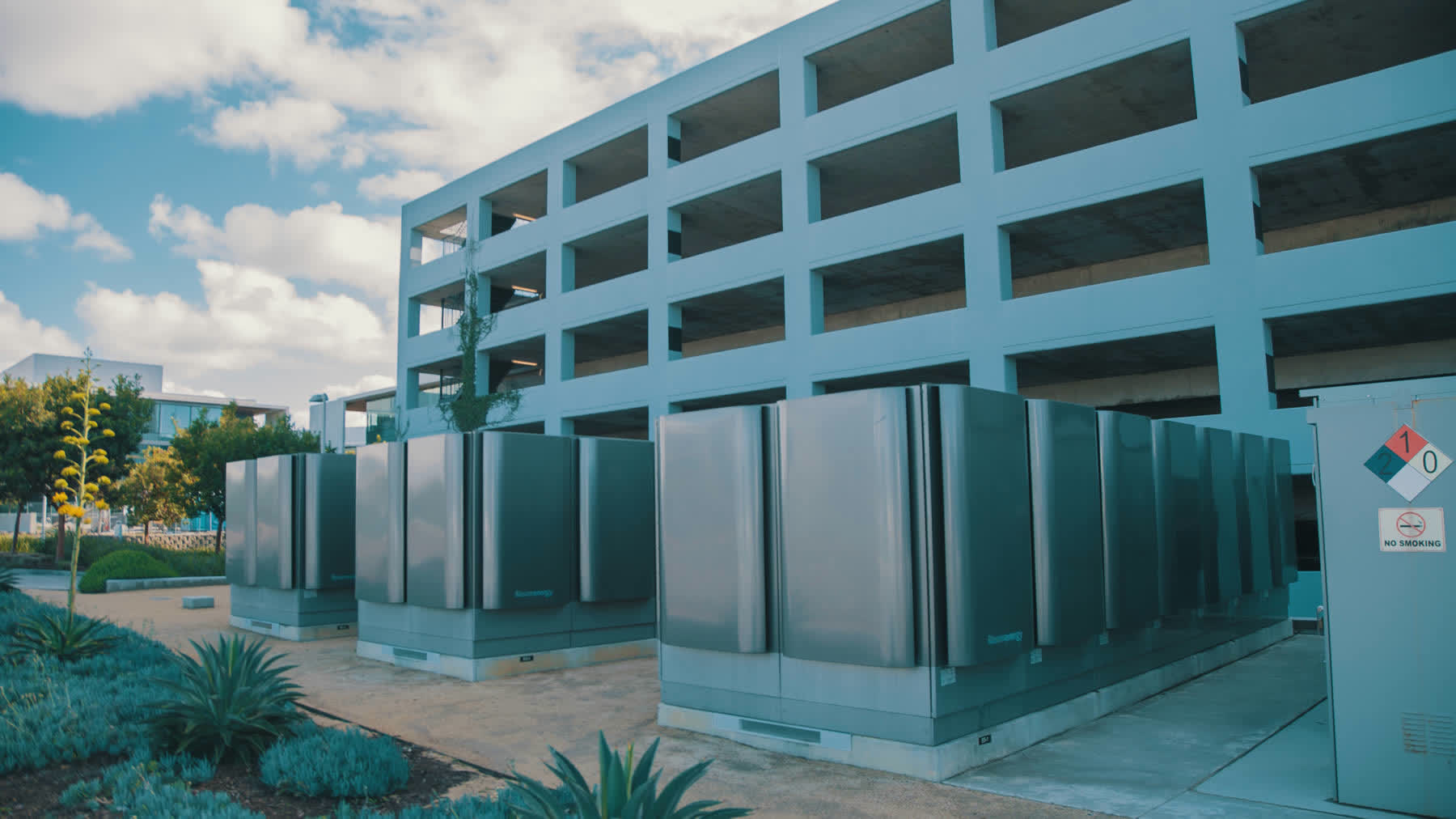In context: Unlike combustion power plants that burn fuel, solid oxide fuel cells like Bloom's directly convert chemical energy into electricity using an electrochemical process. This improves efficience and minimizes emissions compared to conventional technologies like turbines and reciprocating engines.

Bloom Energy has hit a milestone that could make hydrogen a much more viable fuel source for powering everything from data centers to manufacturing plants. The company has achieved 60 percent electrical efficiency using 100 percent hydrogen in their solid oxide fuel cells (SOFC). These cells are also capable of running on natural gas and hydrogen blends. The breakthrough took place by the company's R&D facility in Fremont, California.
Hydrogen has historically been more expensive than fossil fuels like natural gas. Bloom's breakthrough helps offset that through far greater electrical conversion rates, making hydrogen a much more economically viable clean power source. Fuel cell technology is also superior to conventional battery tech since it can continuously generate electricity as long as fuel is supplied.
The ability to generate around-the-clock, carbon-free electricity is a huge advantage as power-hungry sectors like data centers and advanced manufacturing continue straining utility grids. Distributed hydrogen fuel cell installations could take load off the grid while also cutting emissions.
Fuel cells also cut out nasty pollutants like nitrogen oxides and sulfur dioxide that wreak havoc on air quality, and in turn, our lungs.
As for individual SOFCs, Bloom claims they are unique because of their design. Instead of using precious metals or corrosive acids found in other fuel cells, the company coats that electrolyte with special proprietary ink formulas for the anode and cathode electrodes.
On top of that, the high operating temperatures of the solid oxide design enable combined heat and power (CHP) capabilities that other fuel cell types lack. Customers can capture and utilize high grade waste heat for applications like chillers, industrial processes, and building heating. When fully utilized, Bloom claims its fuel cell technology can achieve overall efficiency levels of up to 90 percent.
Hydrogen fuel cells from Bloom Energy hit 60% efficiency milestone